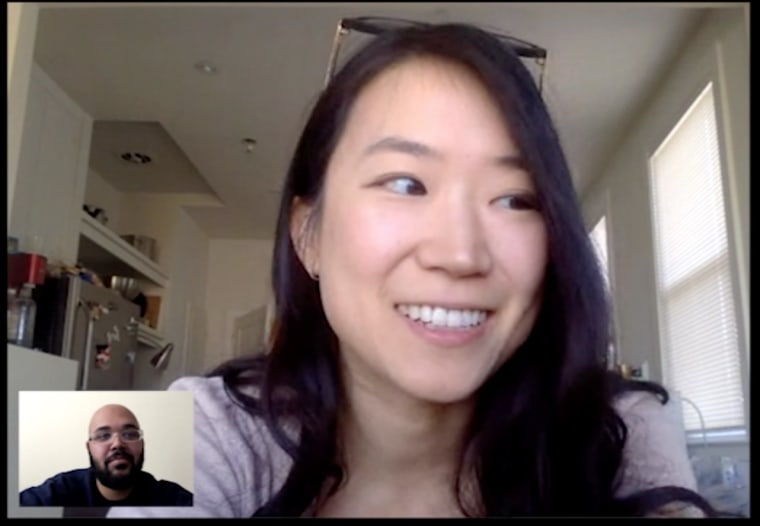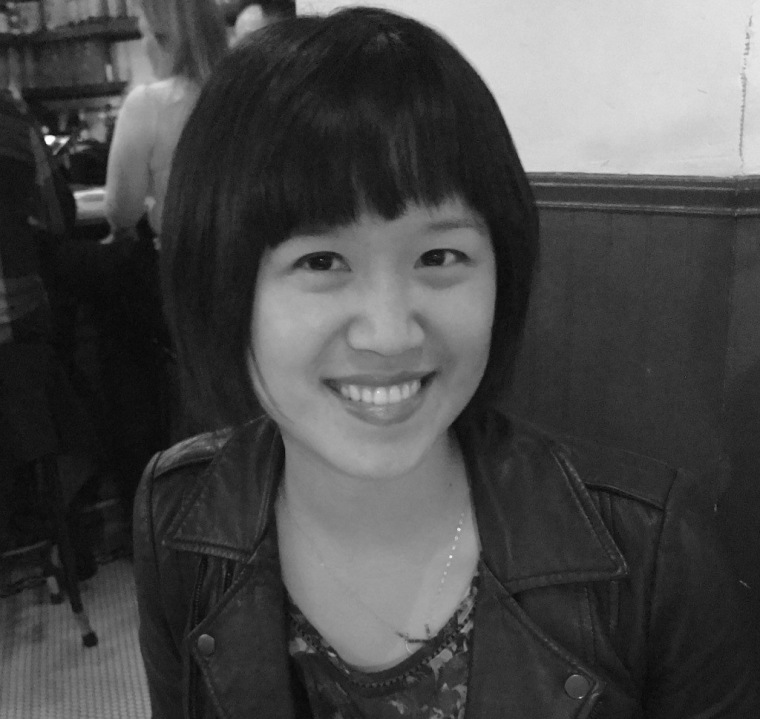I’d just woken up from sleeping in my hotel in Sri Lanka to take part in a video call with Rachel, who lives in California.
I was on the other side of the world and we had never met before, but we spent the next 20 minutes discussing shared views, different life paths and learning about each other’s travel experiences.
We were taking part in GoatTalks, a project that connects strangers from all over the world in one-on-one video conversations about their lives and perspectives.
The project was the brainchild of journalist Yvonne Leow in response to the polarized dialog in the United States following the inauguration.
“I was just very interested to see if there was anyone who just wanted to talk to people on the other side of the aisle about what was going on and just really exploring more of the nuances of the issues instead of seeing people as an us vs. them,” she told me in a telephone interview.

So Leow used a Google form and posted to Twitter to reach different people. She thought it would just be her friends who signed up for what she first called the Hello Project.
“But once I started seeing unfamiliar names, I was like, ‘Oh, there actually seems to be a desire from some people to really reach out to people they never had a means to communicate with before,’” she said.
About 100 people signed up during the first round of calls. Leow said she wanted people to realize they had a lot more in common with other people than they realized. Jumping on a video call with a complete stranger can be daunting, so Leow provided a prompt as a way to help guide people in case they didn’t know what to say, and potential questions for them to ask.
“What was so rewarding was seeing people generally enjoy the experience after their call,” she told NBC News.
There has been increasing awareness, post-election, of the self-created media bubbles many of us inhabit. Ivan Dylko of the University of Buffalo recently published research that showed that online personalization tools lead people to consume more political information in line with their already established attitudes.
Dylko said educating people about the dangers of political polarization should motivatethem to break out of their bubble.
“Generally, it is considered to be a good thing to be exposed to diverse ideas, especially those you disagree with,” said Dylko, an assistant professor in Buffalo’s Department of Communication. “This is the core of deliberative democracy model.”
Leow was recently awarded a $15,000 grant from the Jim Bettiger Newsroom Innovation Fund to partner with AJ+ for the next calls.
Alexia Underwood, a senior producer with AJ+, said the organization is still working out the details, but the partnership will involve experimenting to see if viewers of AJ+ videos are willing to have discussions with people who have different points of views on various topics.

Benji Jones, 26, signed up for a GoatTalk because he said he was stunned after the presidential election, and decided to seek out ways to listen to the other side.
“I really had no idea that such a large chunk of the country had political views that were so different from my own,” said Jones, who recently relocated from San Francisco to Brooklyn.
Jones, 26, said he ended up having a great time speaking to a Canadian who lived in Toronto. The conversation started by sharing condensed versions of their life stories, which revealed that both of them had struggled with issues of identity, he said.
“Once we found common ground — and there was a lot of it — I felt totally comfortable,” Jones said. “And because we had no pre-existing relationship, it felt like there was very little to lose. Why not be totally open and honest?”
I signed up for the experiment and was given a prompt about politics and its place in our lives. I was assigned to Rachel Katz, 29, a CEO of a healthcare technology company in San Francisco, who said after the election, she felt compelled to speak with people outside her usual world.
She said she enjoyed the mystery of not knowing who she would speak to.
“At the same time, it’s uncomfortable to talk to someone who you don’t know, so right before I felt a bit nervous about how it would go,” Katz told me during a follow-up interview through email. Having the conversation scheduled helped push her out of her comfort zone, she said.
I was surprised that we had similar views, but that our life paths had turned out so differently: I live in middle America whereas she lives in San Francisco. I’m a writer while she’s head of a company. Yet we both enjoy being active and traveling — I was in Sri Lanka at the time; Katz hitchhiked across China with truck drivers trying to get to know more about them.
It wasn't quite a political awakening, since we had a lot in common, but it did help open my eyes to learning about what it’s like living in a bigger city along the coast.
Leow, 28, said participants seemed to be generally moved by how much common ground they found. People are realizing they may come from different places, backgrounds, beliefs and experiences, but they can still coexist.
“It gave me a little more hope in humanity,” she said. “I really encourage opportunities that just help people confront our shared humanity.”